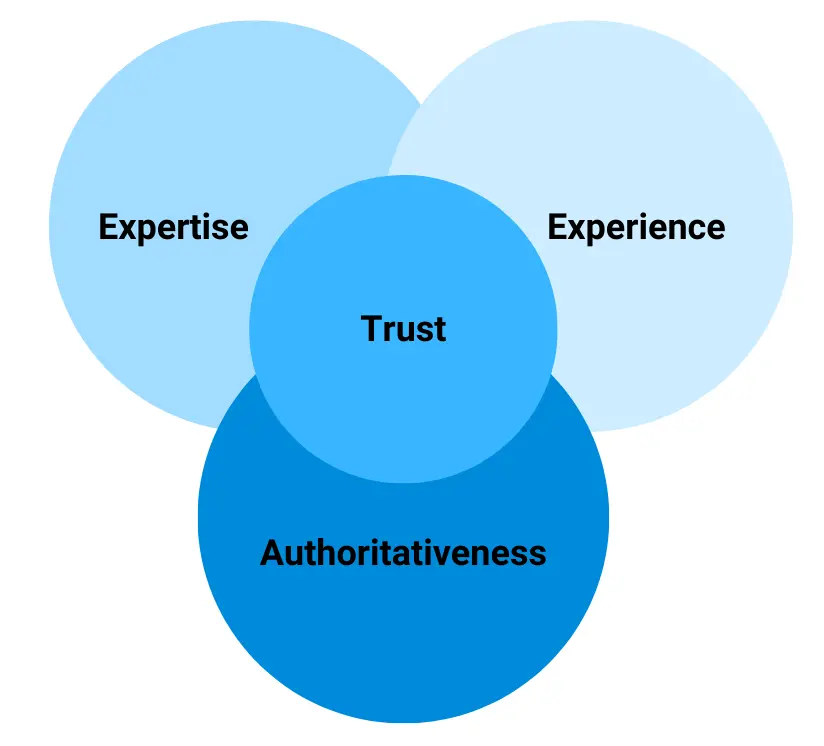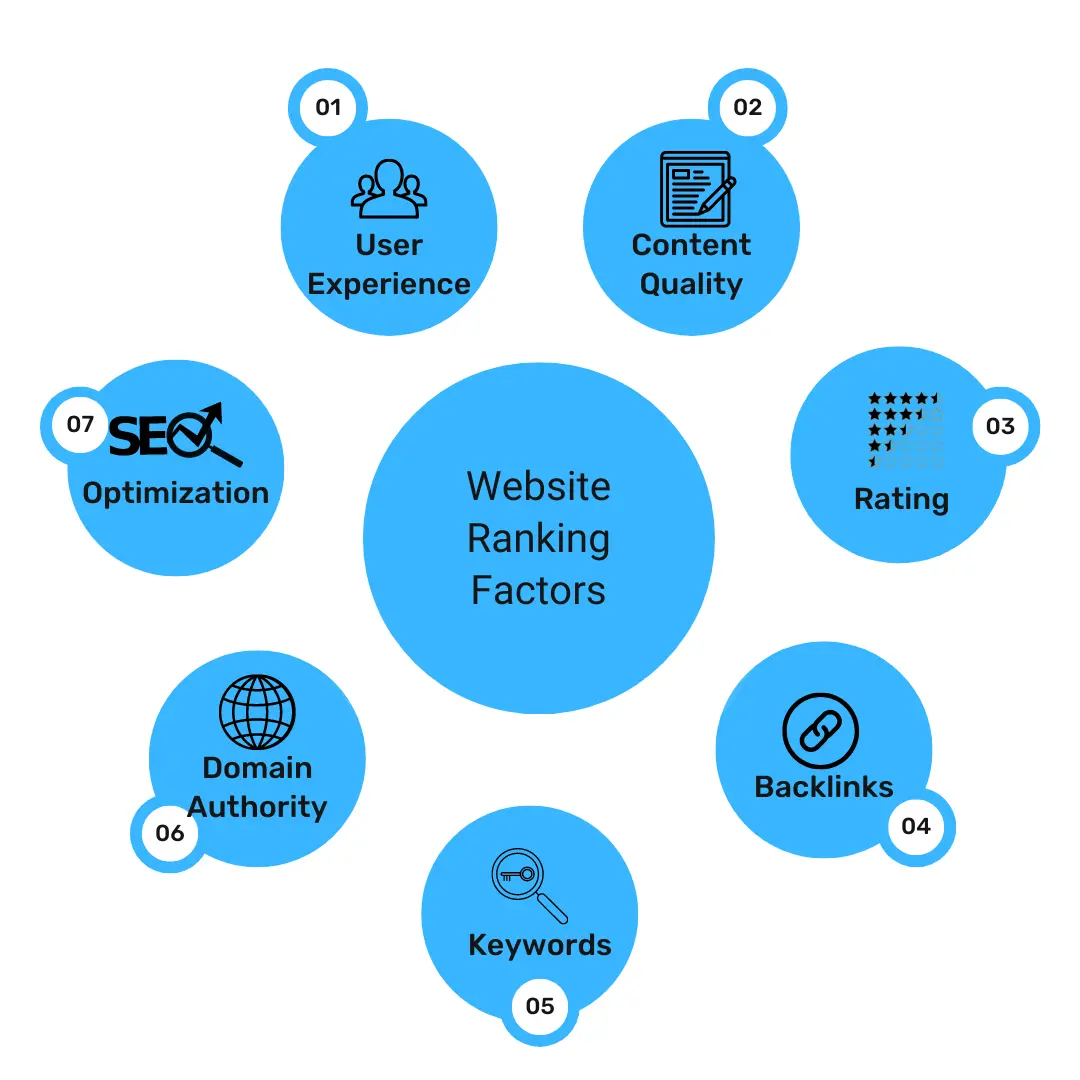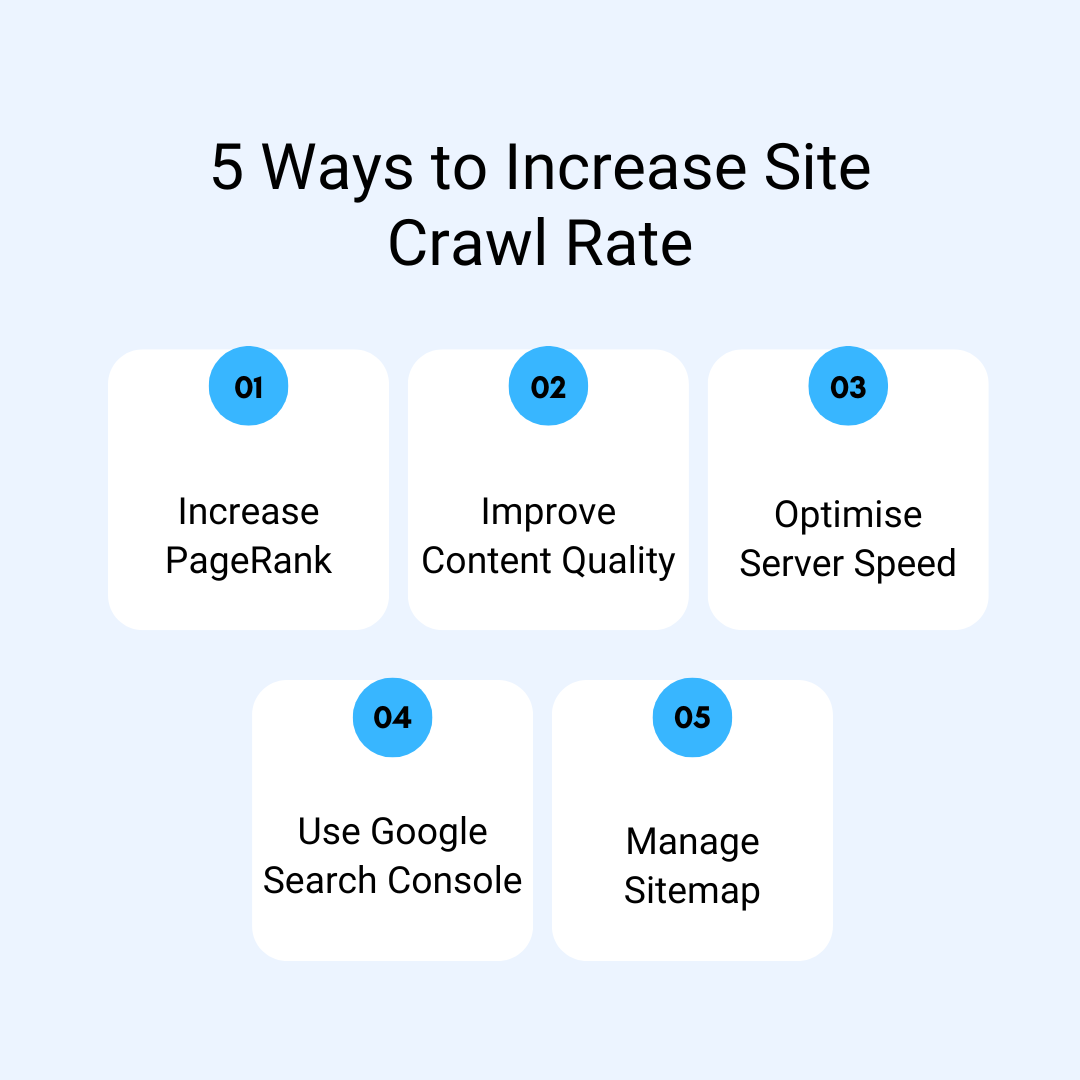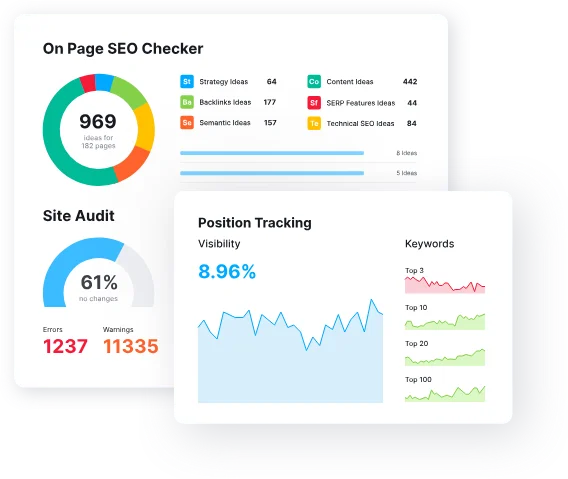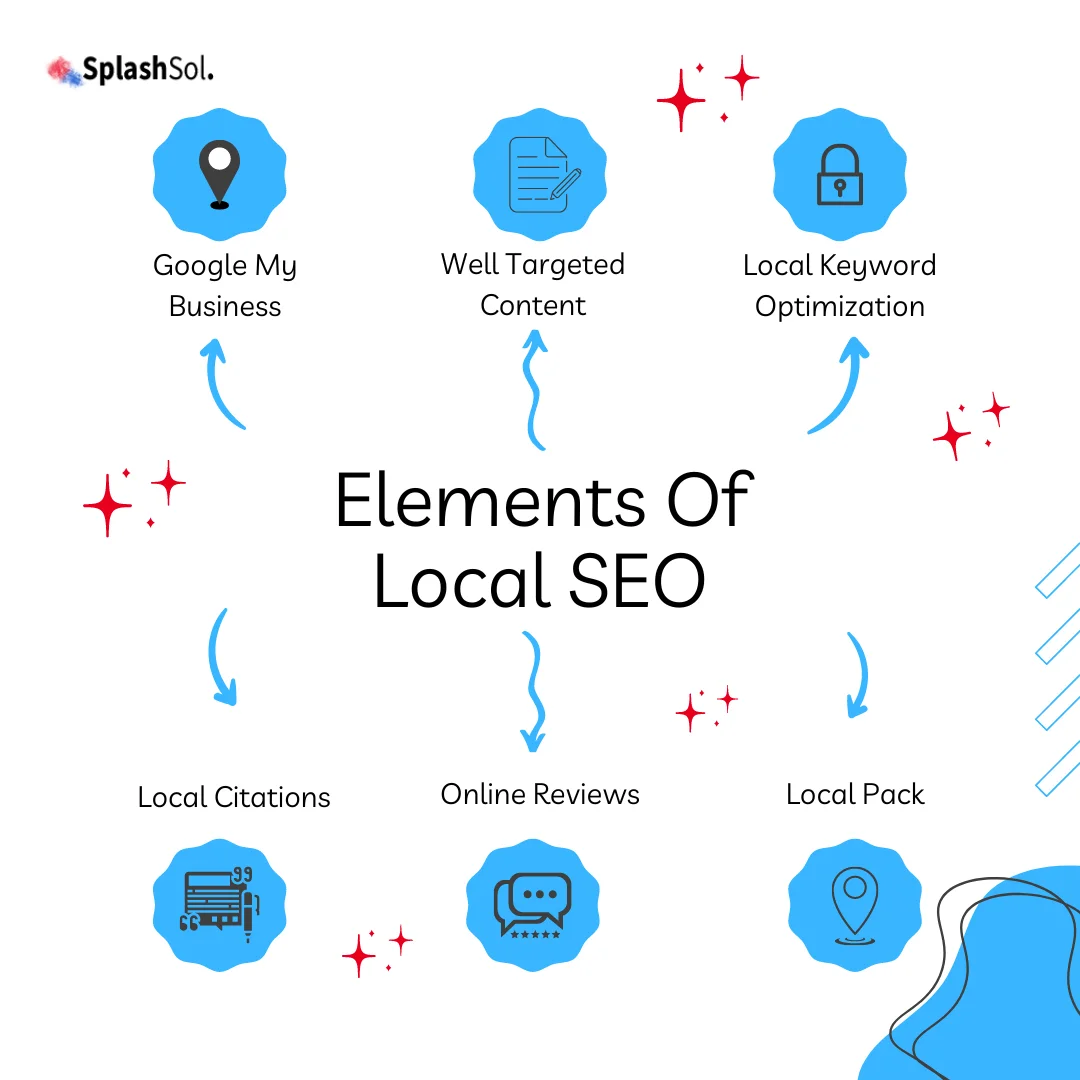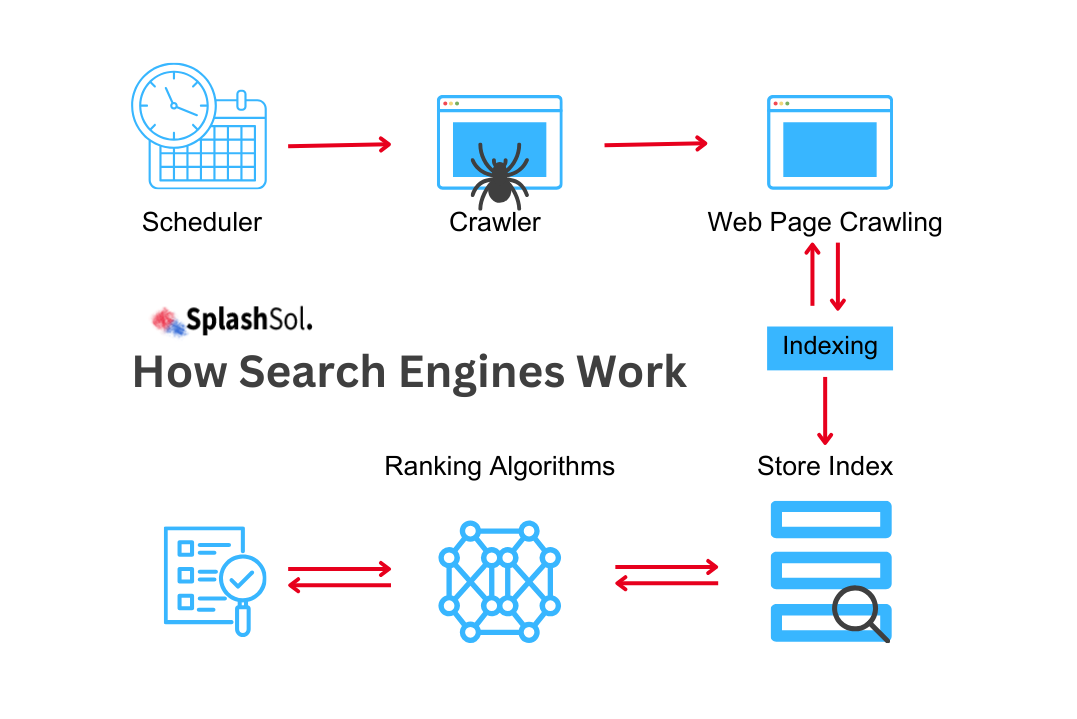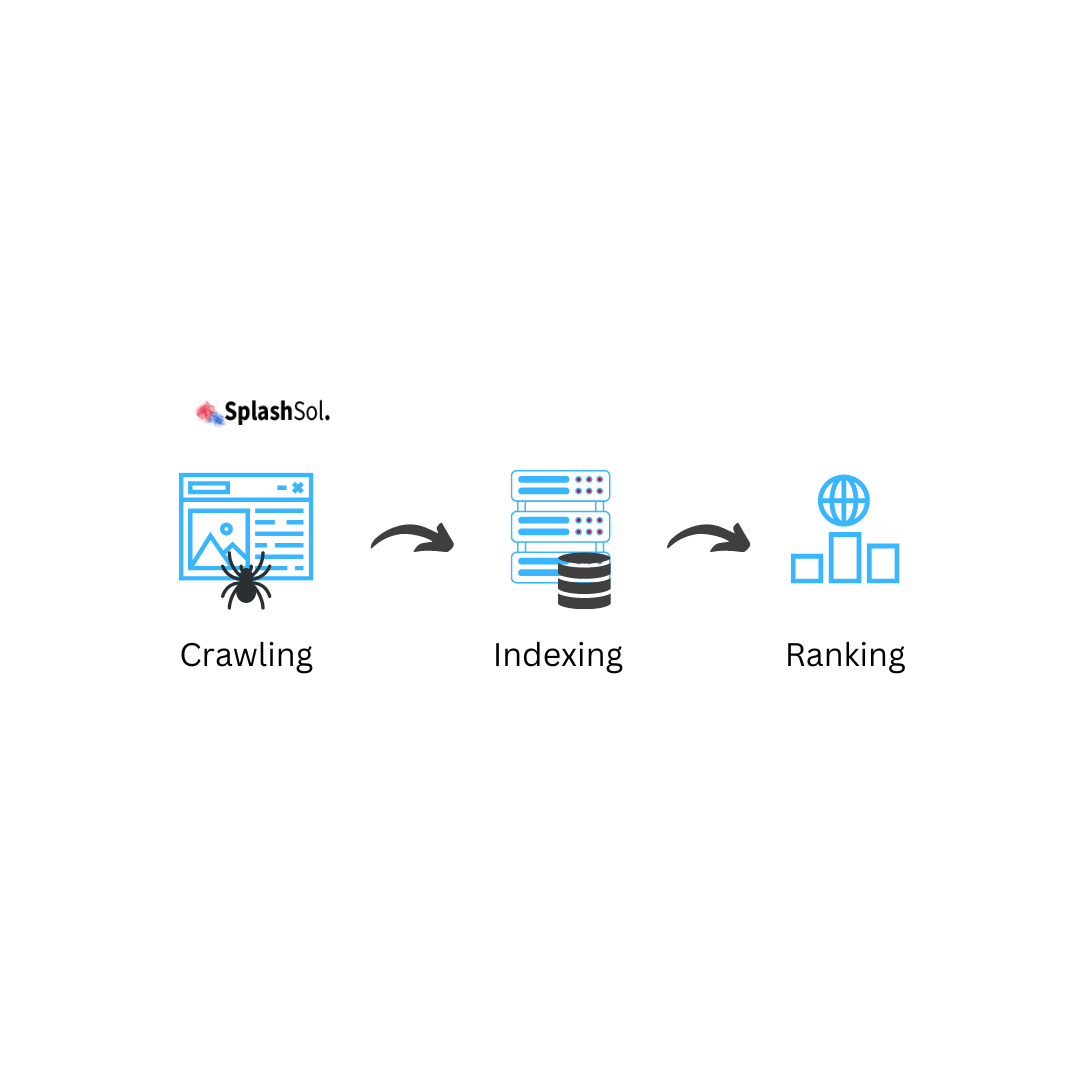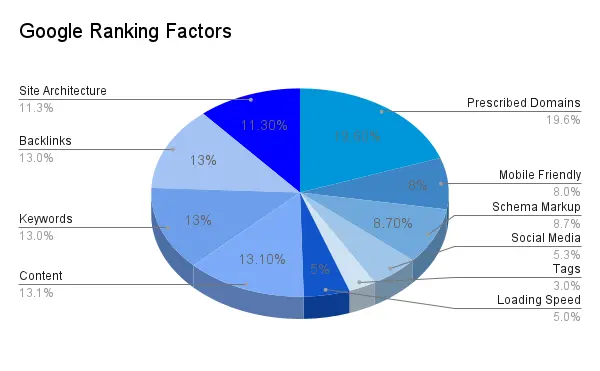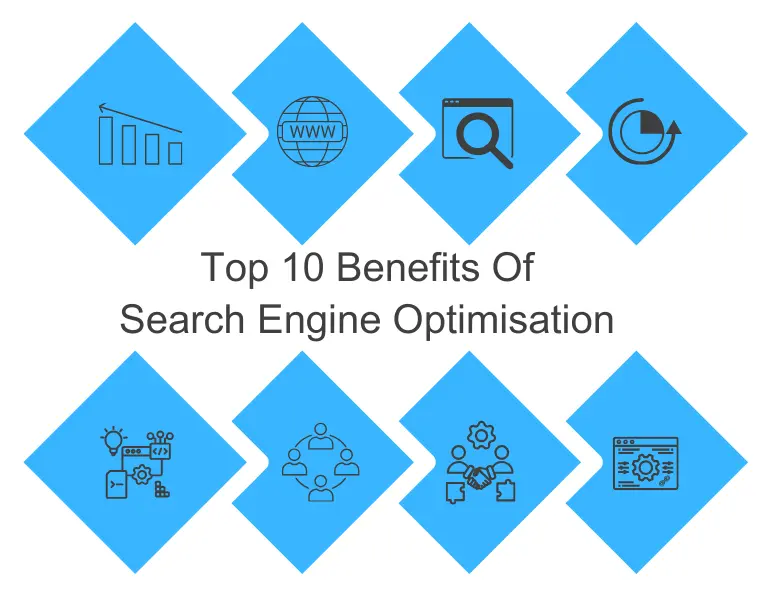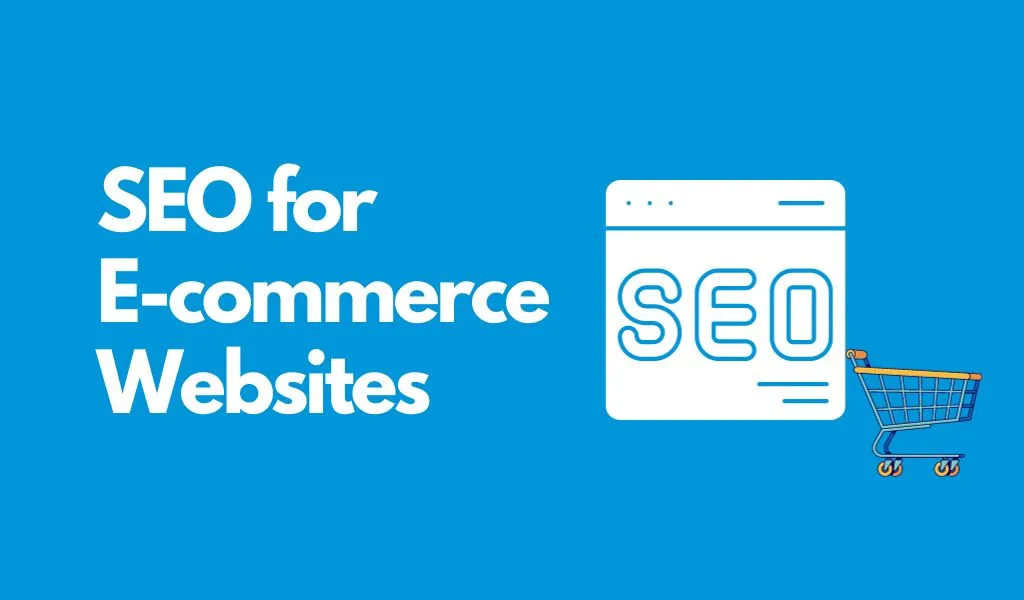
In today’s digital age, having a strong online presence is essential for e-commerce businesses to succeed. Search Engine Optimisation (SEO) is crucial in driving organic traffic and increasing visibility for e-commerce websites. This blog post will explore effective SEO strategies tailored specifically for e-commerce businesses.
From optimising product pages to enhancing site structure and implementing keyword research, we will delve into actionable techniques to help e-commerce websites rank higher in search engine results and attract targeted customers. So, let’s dive in and discover how to leverage SEO to maximise the success of your e-commerce venture.
- Understanding e-Commerce SEO
- Keyword Research and Optimisation
- On-Page Optimisation for E-Commerce Websites
- Site Structure and Navigation
- User-Generated Content and Reviews
- Link Building for E-Commerce Websites
- Mobile Optimisation and Voice Search
- Monitoring and Analysis
Understanding e-Commerce SEO
E-commerce, short for electronic commerce, refers to the buying and selling goods and services online. It involves conducting commercial online transactions, eliminating the need for physical stores or face-to-face interactions.
E-commerce encompasses various models, including business-to-consumer (B2C), business-to-business (B2B), and consumer-to-consumer (C2C). It offers convenience, accessibility, and a global reach, allowing businesses to showcase and sell products to a wider audience.
E-commerce platforms provide secure payment gateways, streamlined logistics, and personalised shopping experiences. With the rapid growth of technology and digital connectivity, e-commerce has become integral to modern commerce and revolutionised how we shop and do business.
The role of e-commerce SEO is to improve the visibility and organic search rankings of an e-commerce website, ultimately driving targeted traffic and increasing sales. E-commerce SEO plays a crucial role in the success of an online store by optimising various elements to enhance search engine visibility and user experience.
This includes conducting keyword research and optimising product pages, improving site structure and navigation, implementing user-generated content and reviews, optimising meta tags and descriptions, and ensuring mobile optimisation. By implementing effective e-commerce SEO strategies, businesses can attract more qualified visitors, improve conversions, and establish a strong online presence in a highly competitive e-commerce landscape.
Importance of SEO for e-commerce websites
SEO is paramount for e-commerce websites as it directly impacts their online visibility, organic traffic, sales, and revenue. With effective SEO strategies, e-commerce websites can improve search engine rankings, ensuring potential customers can easily find their products and services.
By optimising product pages, conducting keyword research, enhancing site structure, and implementing user-friendly navigation, e-commerce businesses can attract targeted traffic and increase conversions.
SEO also helps build brand credibility, establish trust, and stay ahead of competitors. In the highly competitive e-commerce landscape, investing in SEO is crucial for long-term success and sustainable growth.
Key differences between e-commerce SEO and traditional SEO
While the fundamental principles of SEO apply to both e-commerce and traditional websites, there are key differences between e-commerce SEO and traditional SEO.
Keyword focus: E-commerce SEO heavily revolves around product-based keywords, focusing on optimising individual product pages. Traditional SEO, on the other hand, targets a broader range of keywords related to informational content.
Site structure: E-commerce websites typically have a complex structure with numerous product categories and subcategories. Optimising the site structure and navigation becomes crucial for e-commerce SEO, whereas traditional SEO focuses more on organising informational content.
Conversion optimisation: E-commerce SEO strongly emphasises conversion optimisation, including improving product descriptions and customer reviews and optimising the checkout process. Traditional SEO primarily focuses on driving traffic and engagement.
User-generated content: E-commerce SEO leverages user-generated content, such as reviews and ratings, to enhance product visibility and trust. Traditional SEO relies more on creating and optimising original content.
Mobile optimisation: With the increasing use of mobile devices for online shopping, e-commerce SEO places greater importance on mobile optimisation, responsive design, and providing a seamless mobile shopping experience. Traditional SEO may not prioritise mobile optimisation to the same extent.
The impact of SEO on e-commerce sales and revenue
SEO has a significant impact on e-commerce sales and revenue. By improving search engine visibility, attracting targeted traffic, and optimising user experience, SEO increases organic traffic and conversions.
Higher rankings and visibility lead to more potential customers finding the e-commerce website, increasing sales. Effective SEO strategies, such as keyword optimisation, improved site structure, and mobile optimisation, enhance the overall customer experience, build trust, and establish brand credibility.
The result is higher conversion rates, increased average order value, and sustained revenue growth, making SEO a vital driver of e-commerce success.
Fact- The total value of the revenue generated by e-commerce sales soared to $6 billion in 2022 from just $1.3 billion in 2014.
E-Commerce SEO Case Study
One notable case study that highlights the significant impact of SEO on e-commerce sales and revenue is the success story of an online retail store named MIKAAL specialising in organic beauty products.
Before implementing SEO strategies, the e-commerce store struggled to gain visibility in search engine results and attract targeted traffic. However, after optimising their website for SEO, they experienced a substantial increase in organic search rankings and saw a significant boost in sales and revenue.
Increased Organic Traffic: By conducting thorough keyword research and optimising their product pages, the e-commerce store achieved higher rankings in search engine results pages (SERPs). As a result, their organic traffic increased significantly, bringing in a steady stream of potential customers actively searching for organic beauty products.
Targeted Audience: Implementing SEO strategies allowed the store to attract a highly targeted audience. By optimising for specific product-related keywords, they captured consumers’ attention actively looking for organic beauty products, leading to a higher conversion rate.
Enhanced User Experience: SEO efforts also focused on improving the website’s user experience. The e-commerce store optimised site speed, implemented mobile responsiveness, and ensured easy navigation, reducing bounce rates and increasing customer engagement. A seamless and user-friendly website experience further contributed to increased sales.
Improved Conversion Rate: With optimised product pages, persuasive meta tags, and compelling product descriptions, the e-commerce store provided valuable information and built trust with potential customers. This, in turn, led to a higher conversion rate and an increase in the average order value.
Brand Visibility and Credibility: As the e-commerce store climbed higher in search engine rankings, it’s brand visibility and credibility improved significantly. They gained a reputation as a trustworthy source of organic beauty products, attracting more customers and repeat business.
Overall, successful SEO strategies substantially increased e-commerce sales and revenue for the organic beauty products store. By targeting the right audience, enhancing user experience, and improving search engine visibility, they were able to establish a strong online presence and effectively compete in the market.
This case study emphasises the crucial role of SEO in driving e-commerce sales and revenue. By investing in SEO strategies tailored to their specific industry and target audience, e-commerce businesses can experience remarkable growth and achieve long-term success.
Keyword research and optimisation
Keyword research and optimisation are essential aspects of e-commerce SEO. Keyword research involves identifying and analysing the specific search terms and phrases that potential customers use when looking for products or services online.
The goal is to understand user intent, search volume, and competition for different keywords. Various tools and techniques are utilised to gather relevant keyword data.
Once the relevant keywords are identified, keyword optimisation is implemented. This process involves strategically incorporating the chosen keywords into various elements of an e-commerce website, such as product titles, descriptions, headings, URLs, and image alt tags. By optimising these elements, the website signals its relevance to search engines, improving the chances of appearing in search results when users search for those keywords.
Keyword optimisation helps e-commerce websites attract targeted traffic and improve search engine rankings. By aligning product pages and other content with popular and relevant keywords, businesses increase their visibility to potential customers actively searching for the products they offer. It also helps create a user-friendly website structure and enhances the overall user experience.
Continuous monitoring and refinement of keyword strategies are crucial in e-commerce SEO. By staying updated with industry trends, search behaviour, and competition, businesses can adapt their keyword optimisation efforts to maintain and improve their search engine visibility.
Conducting a keyword research for e-commerce websites
Follow the steps below to conduct keyword research for an e-commerce website.
- Start by brainstorming relevant terms and phrases related to your products or industry.
- Use keyword research tools like Google Keyword Planner, SEMrush, or Moz Keyword Explorer to identify high-volume and low-competition keywords.
- Analyse competitor websites to find keywords they are targeting.
- Consider long-tail keywords, specific product names, and descriptive terms.
- Focus on commercial intent keywords, indicating users are ready to purchase.
- Prioritise keywords with a good balance of search volume and relevance.
- Refine keywords based on performance, regularly monitor rankings and adjusting strategies accordingly.
Utilising long-tail keywords for product optimisation
Identify specific, descriptive long-tail keywords that accurately describe your product and make sure to Incorporate long-tail keywords into product titles, headings, meta descriptions, and product descriptions naturally and organically.
E-Commerce SEO experts recommend creating unique content that answers questions or addresses specific needs related to long-tail keywords. You should optimise image alt tags, file names, and captions with long-tail keywords.
Consider creating separate landing pages or categories based on long-tail keywords to target specific niche markets. Monitor the performance of long-tail keywords, including their search volume and conversion rates, and make adjustments as needed to optimise results.
It would be super useful to continuously evaluate and refine your long-tail keyword strategy based on customer feedback, search trends, and industry changes to ensure ongoing optimisation.
Optimising category and product pages with targeted keywords
To optimise e-commerce category and product pages with targeted keywords:
- Conduct keyword research to identify relevant and high-converting keywords for each category and product.
- Include the targeted keywords naturally in the page title, meta description, headers, and URL.
- Optimise product descriptions, ensuring they are unique, compelling, and keyword-rich.
- Utilize schema markup to provide additional information to search engines and enhance visibility.
- Implement internal linking between related products and categories to improve site structure and keyword relevance.
- Monitor keyword performance and make adjustments as needed to ensure optimal rankings and conversions.
- Regularly update and optimise content based on customer feedback, search trends, and industry changes to stay competitive in search results.
Implementing schema markup for enhanced search visibility
To implement schema markup for enhanced search visibility:
- Identify the relevant schema markup types that align with your e-commerce website’s content, such as products, reviews, ratings, or pricing.
- Use Schema.org guidelines and structured data testing tools to generate the necessary markup code.
- Implement the schema markup code on your category and product pages, including key information like product details, prices, reviews, and ratings.
- Validate the implemented schema markup using the structured data testing tool to ensure correctness.
- Submit your updated pages to search engines for reindexing to take advantage of the enhanced search visibility provided by schema markup.
- Regularly monitor and maintain the schema markup to ensure accuracy and adapt to any changes in schema guidelines or requirements.
- Continuously evaluate the impact of schema markup on search visibility and make adjustments as necessary to optimise results.
On-Page optimisation for e-commerce websites
On-Page Optimisation for E-Commerce Websites is crucial to improve search engine visibility, user experience, and overall website performance. Let’s explore the key aspects of on-page optimisation for e-commerce websites:
Optimising meta tags, titles, and descriptions for product pages:
- Craft unique and descriptive meta titles that include targeted keywords and accurately reflect the product.
- Write compelling meta descriptions that concisely summarise the product’s features, benefits, and value proposition.
- Ensure that meta titles and descriptions are within the recommended character limits to avoid truncation in search results.
- Include relevant keywords naturally in the meta tags while maintaining readability and relevance.
- Create unique meta tags for each product page to avoid duplicate content issues and improve individual page visibility.
Creating unique and compelling product descriptions:
- Write original and engaging product descriptions highlighting unique selling points, features, and benefits.
- Incorporate targeted keywords naturally in the product description without keyword stuffing.
- Use bullet points, headings, and formatting to improve readability and make important information stand out.
- Provide accurate and detailed information, including product specifications, dimensions, materials, and usage instructions.
- Use persuasive language to encourage customers to take action, emphasizing the value and benefits of the product.
Optimising image alt tags and filenames:
- Assign descriptive and keyword-rich filenames to product images before uploading them to the website.
- Optimise image alt tags by providing concise, descriptive text that accurately represents the image content and includes relevant keywords.
- Ensure that image alt tags and filenames are relevant to the product and enhance accessibility for visually impaired users.
- Compress and optimise images to reduce file size without sacrificing quality, improving page load speed and overall user experience.
Implementing user-friendly URLs and breadcrumbs:
- Create clean, user-friendly URLs with relevant keywords that accurately represent the page content.
- Use hyphens to separate words in URLs, making them easier to read and understand for both users and search engines.
- Implement breadcrumb navigation to enhance user experience and provide clear navigation paths for users and search engines.
- Breadcrumbs improve the website structure, enabling users to navigate to previous pages and search engines to understand the hierarchical relationship between pages.
Enhancing site speed and mobile responsiveness:
- Optimise website performance by minimizing HTTP requests, reducing file sizes, and leveraging browser caching techniques.
- Compress CSS, JavaScript, and HTML files to improve website speed and load times.
- Optimise images using appropriate file formats, resizing them to the required dimensions, and leveraging lazy loading techniques.
- Implement responsive design to ensure the website adapts and displays correctly on different devices and screen sizes.
- Use mobile-friendly layouts, font sizes, and touch-friendly elements to enhance the user experience.
- Regularly monitor and test website speed and responsiveness using tools like Google PageSpeed Insights or GTmetrix, making necessary optimisations based on their recommendations.
By implementing these on-page optimisation strategies, e-commerce websites can improve search engine visibility, enhance user experience, and drive higher engagement and conversions. Regular monitoring, testing, and refinement are crucial to stay updated with search engine algorithms and deliver an optimal user experience on an ongoing basis.
Site structure and navigation
E-commerce Site Structure and Navigation are critical for user experience and search engine optimisation. Let’s discuss each perspective in detail:
Organizing products into relevant categories and subcategories:
- Categorize products based on their characteristics, attributes, or usage to create logical and intuitive categories.
- Consider the needs and preferences of your target audience when structuring categories and subcategories.
- Use descriptive and keyword-rich category names to improve search engine visibility and user understanding.
- Avoid creating too many levels of subcategories, as it may lead to confusion and navigation difficulties.
- Ensure products are placed in the most appropriate categories to facilitate easier browsing and discovery.
Implementing intuitive navigation menus and search functionality:
- Design clear and intuitive navigation menus prominently displayed and accessible on all pages.
- Use descriptive and concise menu labels that accurately represent the content within each category or subcategory.
- Incorporate drop-down or mega menus to display subcategories and allow users to navigate directly to specific product pages.
- Include a prominent search bar on every page to enable users to search for products based on keywords or specific criteria.
- Implement search filters to allow users to refine their product searches based on price, colour, size, and more attributes.
Optimising internal linking structure for improved user experience and SEO:
- Utilize internal linking to connect related products, categories, and informational pages to enhance navigation and user engagement.
- Include contextual anchor text using relevant keywords in internal links to provide additional information and improve SEO.
- Implement breadcrumbs to show the user’s location within the site’s hierarchy and enable easy navigation.
- Ensure that internal links are intuitive and placed strategically within the content to guide users to relevant pages.
- Regularly audit and update internal links to fix broken links and maintain a well-connected website structure.
Creating XML sitemaps for search engine crawlers:
- Generate XML sitemaps that list all the important pages of your e-commerce website, including product and category pages.
- Submit the XML sitemap to search engines to help them discover and index your website’s content more efficiently.
- Ensure the XML sitemap is regularly updated to reflect any changes or additions to the website’s structure or content.
- Include canonical tags to avoid duplicate content issues and indicate preferred versions of pages to search engines.
- Use XML sitemaps to prioritize essential pages and improve the crawlability and indexing of important product pages.
By implementing a well-structured site with intuitive navigation menus, robust search functionality, optimised internal linking, and XML sitemaps, e-commerce websites can enhance user experience, facilitate product discovery, improve search engine visibility, and increase overall website performance. Regularly monitoring and refining the site structure and navigation based on user feedback and analytics can ensure a seamless and efficient shopping experience for customers.
User-generated content and reviews
E-commerce User-Generated Content (UGC) and Reviews play a vital role in building trust, enhancing user engagement, and improving search engine optimisation (SEO). Let’s discuss each perspective in detail:
Encouraging customer reviews and ratings:
- Prompt customers to leave reviews and ratings by sending follow-up emails, offering incentives, or providing an easy-to-use review submission process.
- Display customer reviews prominently on product pages to showcase social proof and help potential buyers make informed decisions.
- Respond to customer reviews, both positive and negative, to demonstrate your commitment to customer satisfaction and address any concerns publicly.
- Encourage customers to include specific details about their experience, product usage, and benefits received to provide more valuable insights for other shoppers.
Leveraging user-generated content for SEO benefits:
- User-generated content, such as product reviews, generates fresh and unique content on product pages, enhancing the website’s SEO value.
- Search engines recognize the relevance and authenticity of user-generated content, which can improve search engine rankings.
- Implement keyword optimisation within user-generated content to capture long-tail keywords and increase the chances of appearing in relevant search queries.
- Encourage users to include relevant keywords naturally within their reviews, ensuring they are not forced or manipulated.
Implementing rich snippets and review schema markup:
- Utilize structured data markup, specifically review schema, to provide search engines with additional information about the reviews and ratings on your e-commerce website.
- Implement review schema markup to display rich snippets, enhancing the visibility and attractiveness of search engine results for your product pages.
- Rich snippets can include star ratings, review counts, and other relevant information, providing users with valuable insights and potentially increasing click-through rates.
- Implementing review schema markup can also help search engines understand the structure and content of your reviews, contributing to improved indexing and search visibility.
By actively encouraging customer reviews and ratings, leveraging user-generated content for SEO benefits, and implementing rich snippets and review schema markup, e-commerce websites can enhance trust, credibility, user engagement, and search engine visibility. It’s crucial to monitor and moderate user-generated content to ensure authenticity, address concerns promptly, and maintain a positive and transparent reputation for your e-commerce business.
Link building for e-commerce websites
Link Building is a crucial aspect of e-commerce SEO, helping to improve search engine rankings, increase website authority, and drive targeted traffic. Let’s discuss each perspective in detail:
Acquiring high-quality backlinks from authoritative sources:
- Focus on obtaining backlinks from reputable and authoritative websites relevant to your e-commerce niche.
- Seek opportunities for guest posting, contributing articles, or getting mentioned on industry-leading blogs, news sites, or publications.
- Develop valuable and shareable content that naturally attracts links from authoritative sources.
- Build relationships with influencers, bloggers, and industry experts who can link back to your e-commerce website.
Guest blogging and content partnerships:
- Identify relevant blogs and websites that accept guest posts or collaborations within your industry.
- Offer high-quality, unique content to these platforms, ensuring it provides value to their audience and aligns with your e-commerce brand.
- Include relevant links back to your product pages or category pages within the guest posts, driving traffic and improving SEO.
- Collaborate with other businesses in your industry to create joint content or run promotions, mutually benefiting from shared links and exposure.
Leveraging influencer marketing for link building:
- Identify influencers or micro-influencers who have a strong following in your e-commerce niche.
- Collaborate with influencers to promote your products, create sponsored content, or run giveaways that generate backlinks and drive traffic.
- Encourage influencers to share their experiences with your products and link back to your website within their content.
- Leverage user-generated content from influencers to create social proof and drive engagement, which can lead to more natural backlinks.
Building internal links to relevant product pages
- Identify opportunities to link internally from relevant informational or blog content to your product pages.
- Use descriptive anchor text with relevant keywords to optimise internal links for SEO.
- Implement a logical site structure and navigation that makes it easy for users to find and navigate through product pages.
- Include related product recommendations and cross-linking between relevant products to improve user experience and encourage exploration.
It’s important to note that while link building is beneficial, it should be approached ethically and organically. Avoid engaging in black-hat tactics or purchasing links, as they can result in penalties from search engines. Focus on building genuine relationships, creating valuable content, and providing a seamless user experience to attract natural and high-quality backlinks that contribute to the growth and authority of your e-commerce website.
Mobile optimisation and voice search
Mobile optimisation is crucial for e-commerce websites due to the exponential growth of mobile usage and the increasing number of users making purchases on mobile devices. Mobile optimisation ensures that your website is responsive and user-friendly, and provides a seamless experience on smartphones and tablets. It improves page load speed, enhances navigation, and adjusts content and layouts to fit smaller screens. By optimising for mobile, you cater to the preferences and behaviour of mobile shoppers, increase engagement, and reduce bounce rates. Additionally, mobile optimisation is essential for search engine rankings, as search engines prioritize mobile-friendly websites in mobile search results.
Optimising for voice search queries and conversational keywords: Voice search is rapidly growing, and optimising for voice search is becoming crucial for e-commerce websites. Voice search queries are often longer and more conversational, so optimising for conversational keywords and natural language is essential. Focus on long-tail keywords and phrases that match how people speak in everyday conversations. Understand the intent behind voice search queries and provide concise, direct answers in your content. Utilize structured data markup, like FAQ schema, to provide context and make it easier for search engines to understand and display your content in voice search results.
Implementing mobile-friendly design and responsive layouts: Implementing a mobile-friendly design ensures that your e-commerce website adapts and provides an optimal experience across various screen sizes and devices. Responsive web design allows the content and layout to adjust dynamically based on the user’s smartphone, tablet, or desktop device. It eliminates the need for separate mobile and desktop versions of your site, making it easier to maintain and ensuring consistent branding and user experience. Mobile-friendly design includes features like large and easily clickable buttons, streamlined navigation, simplified forms, and fast-loading pages. It also considers touch-friendly interactions, such as swipe gestures or pinch-to-zoom functionality. Implementing a responsive layout and mobile-friendly design improves user satisfaction, increases mobile conversions, and enhances your website’s visibility in mobile search results.
In conclusion, mobile optimisation and voice search optimisation are integral to the success of e-commerce websites. Optimising for mobile ensures a seamless user experience, improves search engine rankings, and caters to the preferences of mobile shoppers. Optimising for voice search enables you to capture the growing number of voice search users and provide relevant, conversational content. Mobile-friendly design and responsive layouts ensure consistent branding, better user engagement, and increased conversions across various devices. Embracing these practices will help your e-commerce website thrive in the mobile-driven and voice-activated era.
Monitoring and analytics
Utilizing SEO tools to track website performance and keyword rankings: E-commerce websites can benefit from using SEO tools like Google Analytics, SEMrush, or Moz to monitor website performance and keyword rankings. These tools provide valuable insights into organic traffic, click-through rates, bounce rates, and other key metrics. Tracking keyword rankings helps assess the effectiveness of SEO efforts and identify opportunities for improvement.
Analysing user behaviour and conversion metrics: Monitoring user behaviour metrics like time on site, page views, and exit rates can provide valuable insights into user engagement and website usability. Additionally, analysing conversion metrics such as conversion rate, average order value, and cart abandonment rate helps optimise the conversion funnel and identify potential bottlenecks or areas for improvement.
Making data-driven decisions to refine SEO strategies: By analysing the data collected from website monitoring and analytics, e-commerce businesses can make informed, data-driven decisions to refine their SEO strategies. This includes identifying high-performing keywords, optimising landing pages, improving website usability, and enhancing the overall user experience. Regular analysis and tracking of data help adapt SEO strategies to changes in user behaviour, search engine algorithms, and industry trends, ultimately leading to better visibility, higher organic traffic, and improved conversions.
In summary, monitoring and analytics play a crucial role in the success of e-commerce websites. Utilizing SEO tools, analysing user behaviour and conversion metrics, and making data-driven decisions help businesses refine their SEO strategies, improve website performance, and achieve better results in terms of organic traffic, rankings, and conversions.
Conclusion
Effective SEO implementation is a critical component for the success of e-commerce websites. By understanding the unique challenges and opportunities e-commerce SEO presents, businesses can optimize their websites to attract targeted traffic and drive sales. From conducting thorough keyword research to optimizing product pages, improving site structure, and implementing user-generated content, there are numerous strategies that e-commerce websites can employ to enhance their online visibility. By staying up-to-date with the latest SEO trends and continuously monitoring website performance, e-commerce businesses can establish a strong digital presence and outshine their competitors. So, start implementing these SEO strategies today and witness the growth and success of your e-commerce venture.
Recent Posts

Find Out How SplashSol Can Help Your Business Succeed Online
Your Hub Of Digital Marketing News
Stay Ahead Of The Digital Curve
Take the First Step!
Speak to the Experts - The Top IT Development & Digital Marketing Agency.
Getting in contact with our specialists in simple. All you need to do is fill out the form below and a member of our team will contact you to learn more about your business and goals. We aim to respond to your inquiries within 24 hours.

